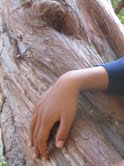Last week, I wrote a post for Motherlode called “Is it
Harder to Have a Child with Down Syndrome?” Many readers (only some of whom
actually have children with Down syndrome) responded with a resounding, “YES!”
and many comments implied that once Penny is an adult, we will begin to see her
as a burden, and we will understand her life as a tragedy.
We, as any reader of this blog knows, are convinced that
this daughter who is now a gift to us will continue, throughout her life, to be
a gift both to us and to many. But the question of “What happens when she gets
older?” is a fair one. What if she can’t live independently? What if she is
diagnosed with Alzheimer’s (as many adults with Down syndrome in their 40’s and
50’s are)? What if we don’t have the money to care for her? What if we aren’t
healthy enough?
And in a broader sense, what about all the other kids with
disabilities, whether that be Down syndrome or autism or cerebral palsy? What
happens when they grow up?
An article in this month’s Atlantic gave me a glimpse of
what could be the future. It describes “Autism’s First Child,” the first man
given the clinical diagnosis of autism, Donald Gray Triplett. Mr. Triplett is
now 77, and he lives a happy and contented life in his hometown of Forest,
Mississippi. In the words of the authors, he has led a “long, happy, surprising
life.”
Some of this happiness and longevity can be attributed to
wealth and education–his parents were able to afford specialists and they were
tenacious in writing doctors about their son and seeking treatment for him. But
much of Donald’s “success” can be attributed to the support of his community
and his inclusion within the small town of Forest.
In the author’s words, the future of people with autism
depends in large part on how the “neuro-typical” society responds to them: “We
can dissociate from them, regarding them as tragically broken persons, and hope
we are humane enough to shoulder the burden of meeting their basic needs…
Alternatively, we can dispense with the layers of sorrow, and interpret autism
as but one more wrinkle in the fabric of humanity… This does not mean
pretending that adults with autism do not need help. But it does mean replacing
pity toward them with ambition for them. The key to this view is a recognition
that ‘they’ are a part of ‘us,’ so that those who don’t have autism are
actively rooting for those who do.”
Mr. Triplett is an example of what it can look like to grow
up with a disability in a social environment that includes and cares rather
than shunning and casting off. I can only hope that Penny will grow up in a
similar context, and that our culture as a whole will begin to see “them” as a
part of “us.” That we all might be blessed by one another.

